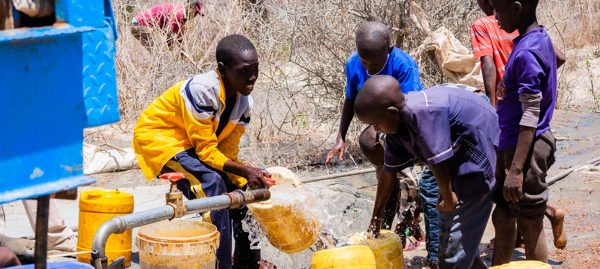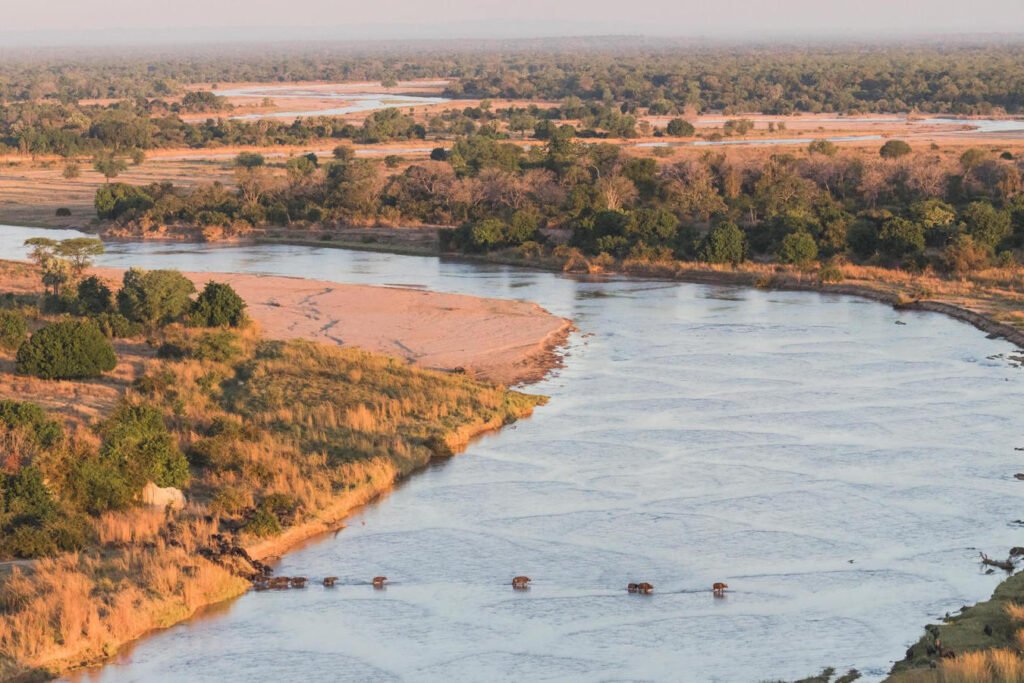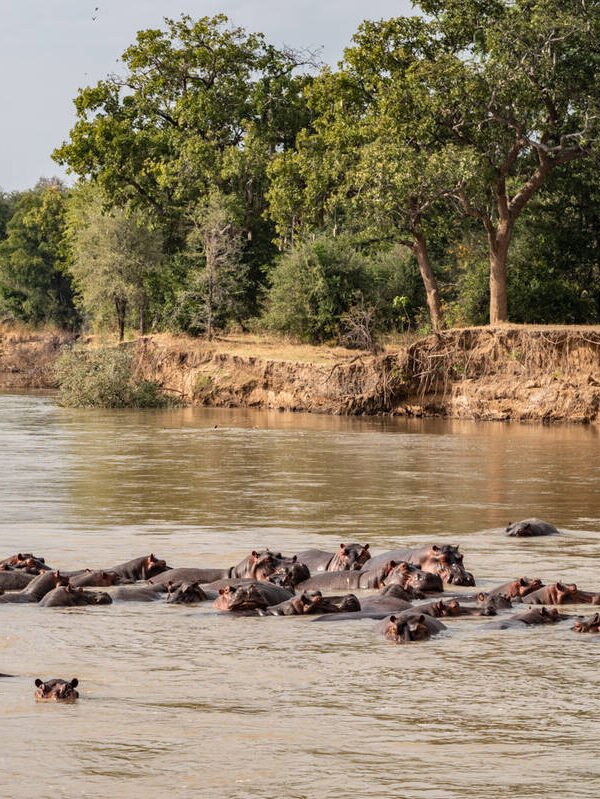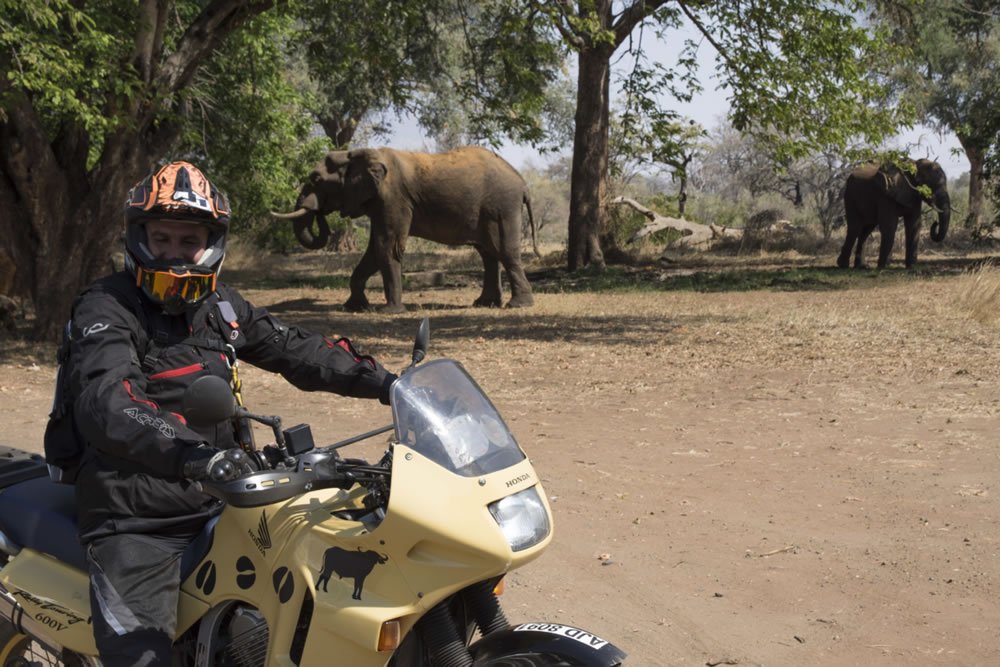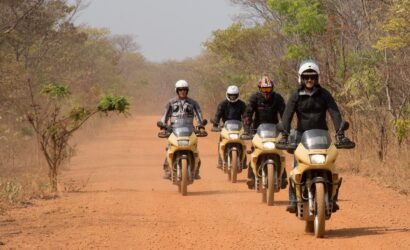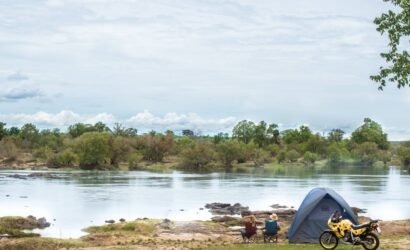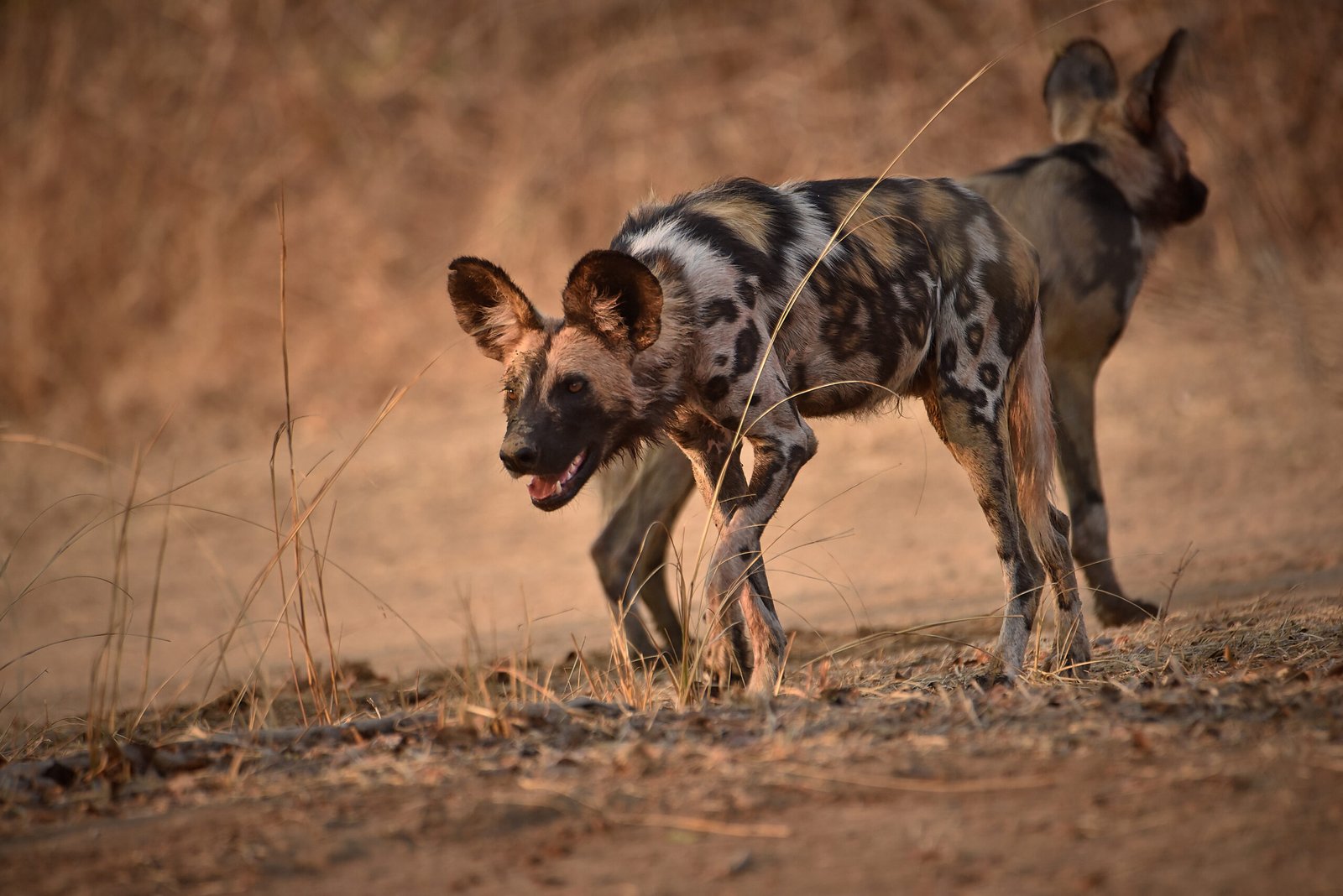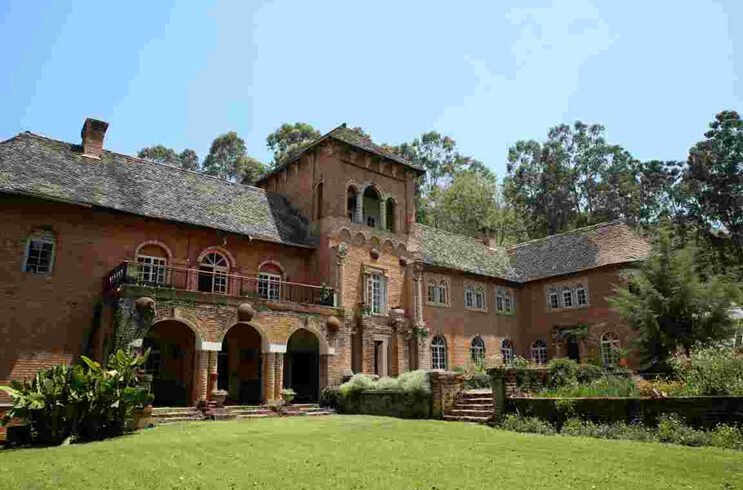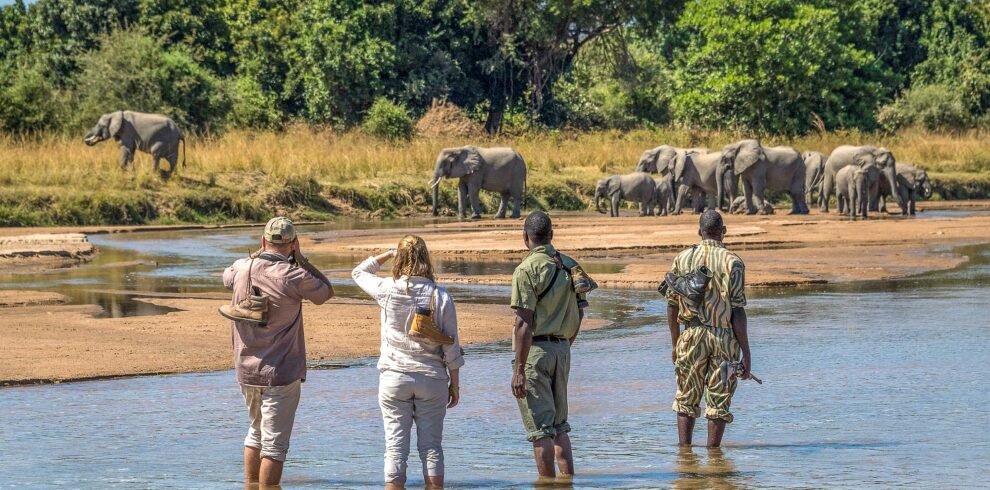South Luangwa National Park is the most famous of National Parks is Zambia due to the abundance of wildlife and the great opportunities to spot large predators. In addition to a large population of felines (mostly leopards and lions), it is home of a large number of elephants, hippos, buffaloes and numerous endemic species such as Thorncrofft giraffe, Cookson’s wildebeests, Crashway’s zebras. The Luangwa River has the highest concentration of hippos and leopards per km2 in the whole Africa and offers great reproduction and hunting ground for many animals, such as fish eagles, jackals, hyenas, crocodiles and countless birds. Sunsets on the Luangwa River are unforgettable experiences and the visit to this National Park is considered one of the highlights for any true Africa lover.
This abundance of wildlife, however, is also known to put a strain on the local communities and villages surrounding the National Park and the Game Management Areas. Human/Wildlife conflict has been a subject of discussion for many years and numerous non-governmental bodies have tried to address the situation, resulting in a vast number of NGOs establishing themselves in this year to work together with the Chiefdoms and communities to improve the lives of the farmers, women, children and other inhabitants.
Breakfast at the lodge followed by introductions / orientations before you begin a guided tour of the villages in chief Kakumbi’s chiefdom. This will be followed by a visit to Project Luangwa, an NGO that supports empowering south Luangwa communities and conservation through tourism, education and gender programs. Here, the team will take you through how they’re contributing positively to the local communities and protecting flora/fauna of this area through various initiatives. Return to the lodge for Lunch and visit Chipembele Trust School in the afternoon. Here, you will learn about rural Zambian School system and enjoy activities with the children; during the afternoon you will have a chance to participate and contribute to the community in different ways. Return to the Lodge in the evening and dinner at the Lodge. Night lodging
